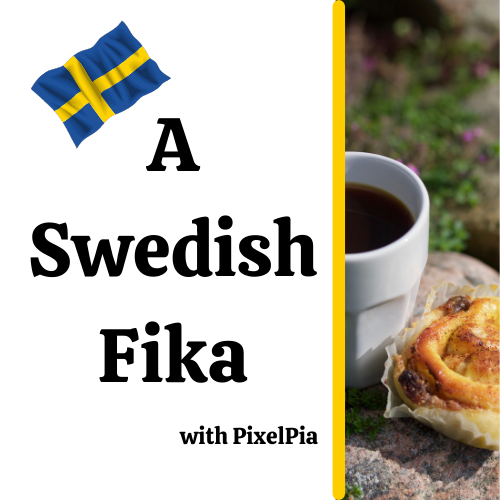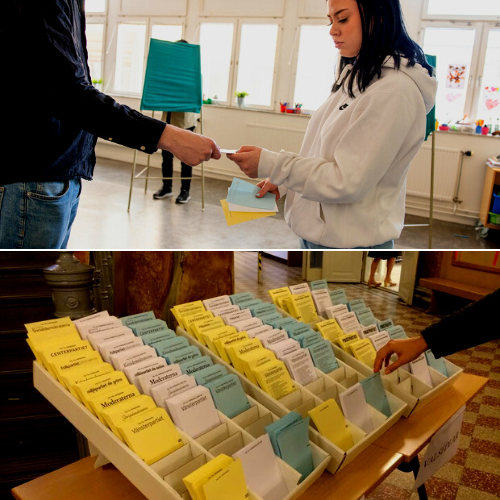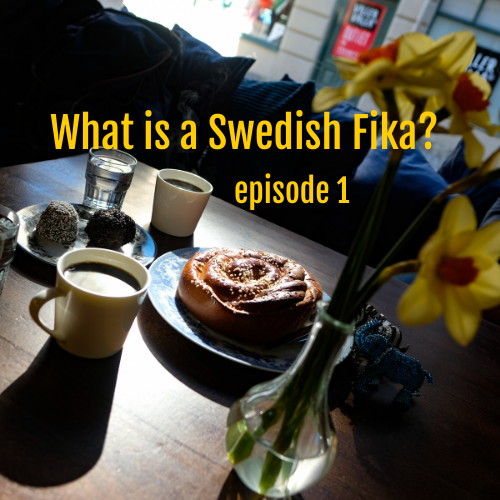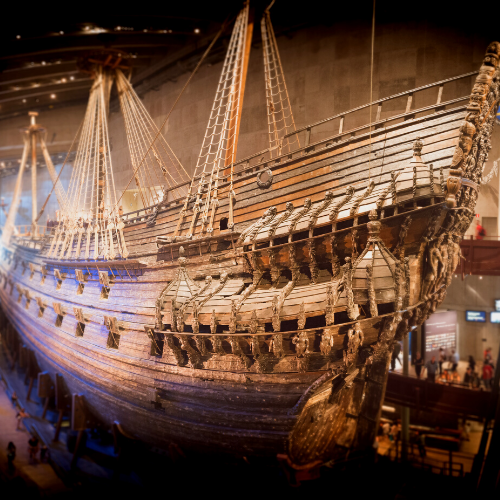The Swedish System
One thing that fascinates Americans from time to time is that we have a king in Sweden. So today I want to tell you about the Swedish monarchy, how it functions and who the Royal family are.
Sweden has a long history of kingdoms, some say it goes back around 1000 years. Today my focus will be on the current royal family and the system we have at the moment. Who are they and what do they do?
Let’s start with a very brief overview of the system. Sweden has a constitutional and hereditary monarchy with a parliamentarian system, also called a constitutional parliamentarian monarchy.
So what does that mean? Let’s get the hereditary part out of the way first, that just means that the throne passes from one family member to another in what is called a succession order. Sweden has had a hereditary monarchy since 1544, before that the kings were selected, not by the people per se but by the aristocracy and other high function members of the country.
A constitutional parliamentarian monarchy means that the monarch, at the moment king Carl XVI Gustav, is officially the highest state office in the country and by courtesy the highest military and social rank, but has no political power. You could say that he is a symbol, an icon, that represents Sweden in different ways. The King’s duties are primarily ceremonial and representative.
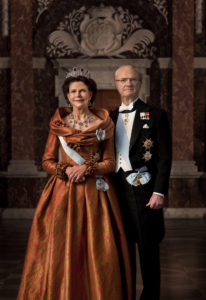
Kungl. Hovstaterna. Foto: Bruno Ehrs / The Royal Court, Sweden. Photo: Bruno Ehrs
Copyright Royal Court of Sweden
The Swedish Royal Family
So before I go into what the royal family actually do, and what the Swedes think about having a monarchy, let’s take a very superficial look at who they are;
Let’s start with His Majesty King Carl XVI Gustav
He was born April 30th, 1946 as the youngest of five, with four older sisters, princesses Margaretha, Birgitta, Desiree, and Christina. When he was only one year old, his father prince Gustav Adolph died in a plane crash, and when his grandfather King Gustav VI Adolf, became king in 1950 the then 4-year-old Karl Gustav became crown prince. At the time the succession order in Sweden said that the thrown had to be inherited by the next in line male.
He became Sweden’s head of state on September 15th, 1973 at the age of 27, succeeding his grandfather king Gustav VI Adolf.
His official motto as he became king was; “For Sweden- With the Times” (För Sverige – i tiden) and thereby declaring his intention of meeting the demands of society on a modern monarch.
Her Majesty Queen Silvia
She was born December 23, 1943, in Heidelberg Germany. She worked as a hostess trainer with the organizing committee for the Munich Olympic games 1971 – 1973 and met the Swedish king during the Olympic Games in Munich in 1972.
They got officially engaged on March 12, 1976, and married the same year in June. She now became the queen of Sweden.
They have three children; Crown princess Victoria, Prince Carl Philip, and Princess Madeleine.
Her Royal Highness Crown Princess Victoria
Was born July 14th, 1977, and since the firstborn was a female this led to a change in the Swedish Act of Succession, decided by the Swedish parliament in 1979 and entered into force January 1st, 1980, when Victoria officially became crown princess, and heir to the Swedish Crown.
She is married to
His Royal Highness Prince Daniel
Daniel Westling was born on 15 September 1973. and got to know Crown princess in 2001 when he was her personal trainer.
They got engaged on 24 February 2009. The wedding took place on 19 June 2010.
Together they have two children which are also part of the official royal family;
Her Royal Highness Princess Estelle was born February 23, 2012
And His Royal Highness Prince Oscar was born March 2nd, 2016
Their second child is
His Royal Highness Prince Carl Philip
He was born on 13 May 1979. In accordance with the Act of Succession Prince Carl Philip is fourth in line of succession, after Crown Princess Victoria, Princess Estelle, and Prince Oscar.
He is married to Her Royal Highness Princess Sofia
She was born on 6 December 1984, and before meeting her prince she was a glamour model and reality television contestant.
They have three sons; Prince Alexander, Prince Gabriel, and Prince Julian.
And lastly, we have
Her Royal Highness Princess Madeleine
She was born 10 June 1982 and is married to Mr. Christopher O’Neill.
They were engaged October 25, 2012, and got married June 8, 2013
When he married her he declined an offer by King Carl XVI Gustaf of Sweden to become a Swedish citizen, prince, and duke, in order to be able to continue as a businessman.
They have three children; Princess Leonore, Prince Nicolas, and Princess Adrienne
All the children of Prince Carl Philip and Princess Sofia, those of Princess Madeleine and Mr. Christoffer O’Neill are since October of 2019 not officially part of the Royal house, but still members of the royal family. What this means is that they will no longer perform top-level royal official duties, but will keep their titles as princes and princesses as personal titles.
In his annual Christmas speech to the people the same year he ended by addressing the question and said the following;
“Earlier this year I made a decision to define what is called the royal house. The decision was to make clear who within the royal family will act as official representatives of Sweden in the future. For me, this is a way of clarifying what expectations are. It will hopefully be helpful when my grandchildren eventually carve out their own future. But, to that day, it is far away.”
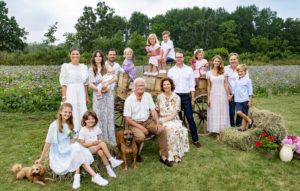
Foto: Jonas Ekströmer, Kungl. Hovstaterna / Jonas Ekströmer, The Royal Court of Sweden
Copyright Royal Court of Sweden
What do the do?
So what are the duties of the royal family?
The tasks entrusted to The King by the 1974 Constitution Act and Riksdag (parliament) Act are as follows:
1. ”The King is the Head of State”
2. He heads the special cabinet council held when there is a change of government, and also the regular ”information councils” of the members of the Government.
3. He opens the Parliament (Riksdag) every year.
4. He chairs meetings of the Advisory Council on Foreign Affairs, the members of which are appointed by the Riksdag to hold consultations with the Government on foreign affairs.
5. He is the foremost representative of the Swedish defense establishment and holds supreme rank in each of the service arms, as well as being honorary commander (Colonel-in-Chief) of certain military units.
6. As Sweden’s foremost representative in relation to other countries, The King receives the credentials of foreign ambassadors and signs those of Sweden’s ambassadors.
When The King is unable to fulfill his duties as Head of State because, for example, he is abroad, his duties are discharged to Crown Princess Victoria, Prince Carl Philip, or Princess Madeleine.
Funding for the activities of The Head of State is allocated by the Riksdag.
The King is liable for taxation and, like other Swedes, he and his family are entitled to vote, though by tradition this right is never exercised.
What do Swedes think of the Monarchy
So What do the Swedes think about the monarchy?
It is very hard to give a definite answer, and the popularity has constantly shifted with the various “scandals” that have been presented, such as the 2010 stories about him being a regular at sex parties held at a Stockholm nightclub in the earlier years of his reign. Which he responded by stating it was a long time ago and he and his family has decided to leave that behind.
Despite this just under 70% of Swedes support the Monarchy as an institution, though calls for the King to abdicate in favor of the more popular crown princess Victoria, many say he should retire after 40 years on the throne.
And what are my thoughts?
I guess I am just as ambivalent as the rest of the Swedish people. Most of the time, especially after moving to the US, I don’t think about them, but if I do I can see the value of having the representation as symbolic as a king or queen being something great. On the other hand, while I lived in Sweden I wasn’t always sure that the cost on the Swedish taxpayers could offset the value of a symbol. And we Swedes are not afraid of paying taxes as long as we get some value out of them. So if you really need a definite answer from me I will have to disappoint. I think they are nice to look at on December 10th at the Nobel Prize festivities, and I like to see them engaged in social and environmental issues, but if we didn’t have them I would be OK with that as well.
And talking about Alfred Nobel. Next week’s topic will be about Alfred Nobel, The Nobel Prize, and The tradition of Sankta Lucia, and the connection between the two are.
Hope to see you back then.
